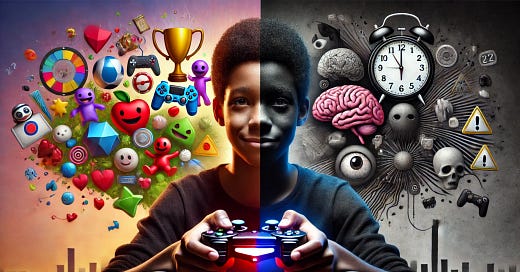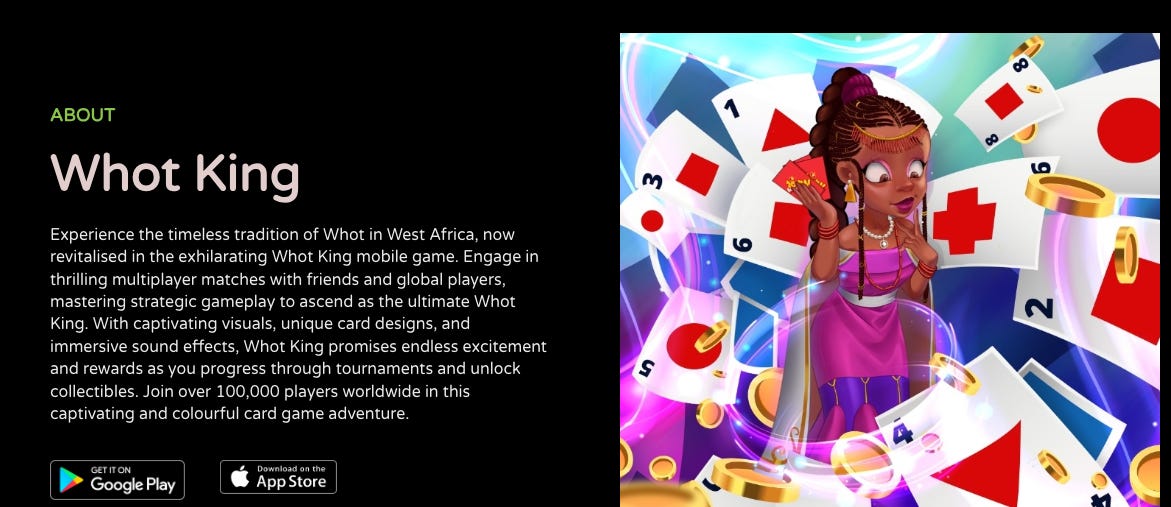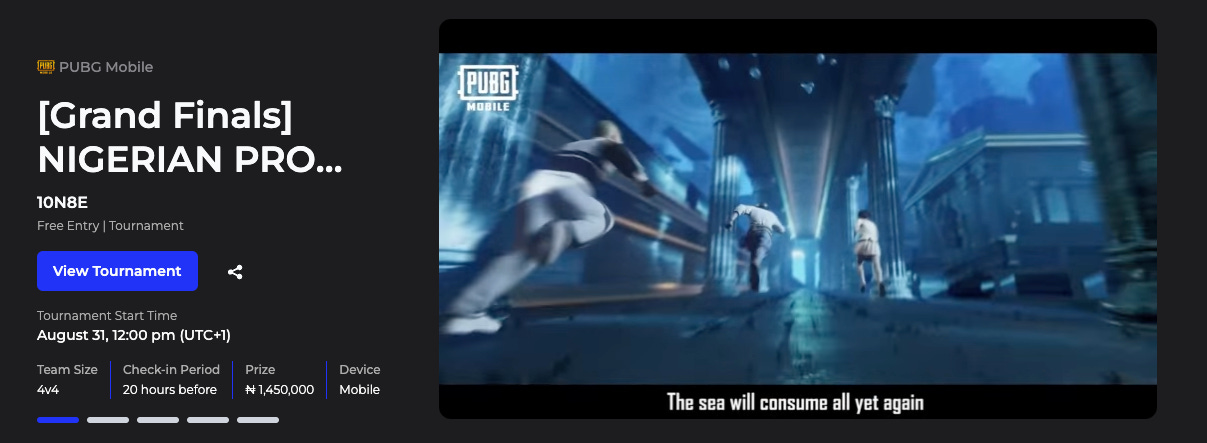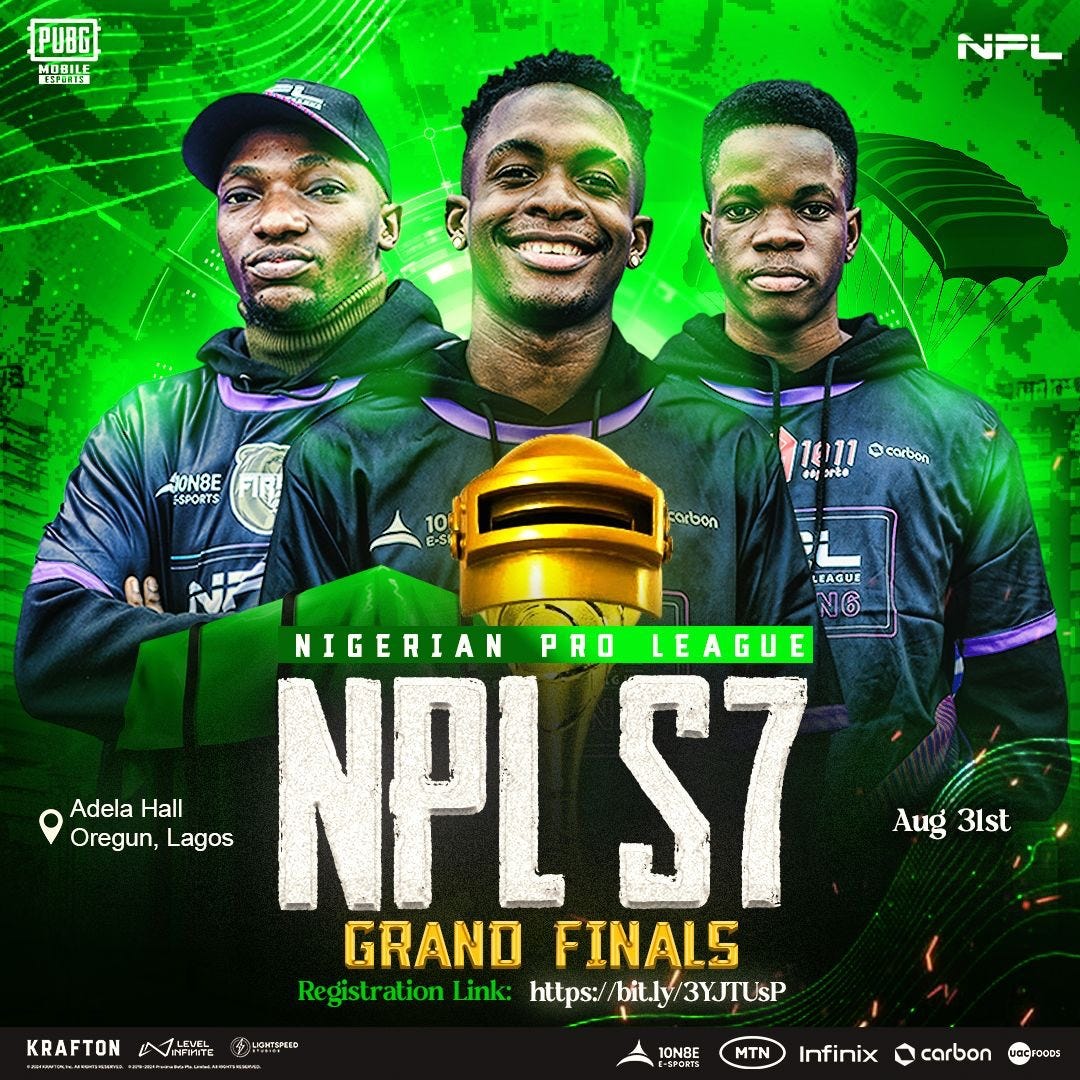I almost wrote this under a pseudonym, fearing my kids would find it and use it against me.
As a teenager, I recall sitting at parties with friends while a spliff was passed around. I was the only one in my group who didn’t smoke. When it came to me, I’d decline with a casual “No, I’m good,” though internally I was thinking, “Never, I don’t want to go to hell.” Watching them sit there stoned, I needed no more proof that it was killing brain cells. “Mummy and Daddy sent me to study, not to smoke Satan’s cigar, thank you very much,” I would tell myself sanctimoniously. Yeah, I was that kind of judgmental ass. These were my friends, so I didn't lecture them, but I was convinced it was a gateway to harder drugs—just like I believed that if you stared lustfully at girls, you’d get them pregnant.
As I’ve matured, I’ve realized some of these fears were exaggerated. Yet, with age I’ve developed new judgements, one being that gaming is a gateway drug—the new opium for Generation Z and beyond. This isn’t to say my peers and I didn’t have a similar fixation on games. We did, but we had to use primitive ZX 81s and Commodore consoles, so addiction wasn’t a concern. Today, there’s a game at everyone’s fingertips, and if the science is right, we’re conditioned to believe excessive gaming, like social media, harms the brain, making you antisocial and leading to other negative behaviors like drooling over cat videos on Instagram. So like a knight protecting the realm from the forces of evil, I’ve waged war against my children’s incessant need to play video games. Until recently.
I have one sibling who is a closet gamer and many friends who would spend weekdays twitching if they didn’t have to work, but I struggle to understand the fixation, so there is serious bias. I’ve never been a big fan of video games - even as a kid I’d play them for 23 and a half seconds before moving on to a book. Maybe this is why I didn’t start dating till I was 33, but my point is that I come with a lot of baggage to the topic. However, I’ve come to realize that this might be the future for us and our kids.
There’s a quiet revolution happening in the gaming industry, especially in Africa. This is a field I’ve long been suspicious of—not because of the business side, but because I’ve seen three young men, my sons, seemingly seduced by it. Every parent knows that the best way to test your authority is to ask your child to do something while they’re in the middle of a game. You can see their eyes glaze over like zombies, asking themselves, “Is it worth the risk of ignoring my parents so I can kill this giant and finish this level - I might get grounded, but see, what about those gemstones I just won.” Such is the power of games; I have learnt humility and no longer make my children choose between me and their consoles.
I’m not ashamed to admit that my change of heart came after watching a program on Dota 2 esports champioinship, where teenagers played in teams to win prizes of $40 million. Teenagers. Millions of $$$. If one of my children won that, they’d have to give it to me for safekeeping, and my fundraising problems would be over. So no, I didn’t travel down this road to Damascus with any sense of objectivity of moral rectitude. I saw $ signs and I was converted. I jest, but many a truth were said in jest.
Seriously, I’m now convinced of the merits of gaming for three reasons. First, gaming is a global business, and the numbers are undeniable. Everyone’s tired of hearing that the gaming industry is bigger than the music and film industries combined. It’s happened elsewhere, and it’s going to happen in Africa. Imagine if my son became the Burna Boy of gaming—Jesus, take the wheel. The truth is that there is a complexity to the creation of games, where you have to keep the player sufficiently motivated yet challenged. In a standard app, one button will typically have a function, e.g. send money, whereas in a gaming app, it may have multiple use cases, especially when combined with other buttons or in different contexts.
Secondly, Africa is underserved. There aren’t enough quality games to meet consumer expectations. Ten years ago, 95% of songs played in nightclubs were American. Today, you must bribe a DJ to play an American song in a Nigerian club. I’m seeing this trend capture multiple African regions. Just recently I signed up to play Whot, produced by Maliyo Games. This is a card game that I played as a child, and I thought it was in the dustbin of history, but now I am playing like there is no tomorrow; who needs Spelling Bee or Wordle when you can go back in time with games that you grew up with?
Lastly, this generation hasn’t been free to express interest in gaming. Saying you want to go into gaming is akin to telling your parents, “I want a career in chain-smoking.” Many parents don’t appreciate it—I was one of them. But the opportunities in gaming, or even using gaming as a methodology, are immense. Hugo Obi of Maliyo Games is leading the charge with GameUp Africa, which provides programs to teach the fundamental skills in gaming: audio, design, storytelling - you name it, it’s there. Bukola Akingbade of Kucheza Gaming is another industry leader who started even earlier by advocating for gaming as a key channel for educating children as young as six. It may seem radical but surely this makes intuitive sense - if you are having fun whilst learning, that is bound to help in keeping students engaged.
At Carbon, we put money where our mouths are so for the past two years we have been proud partners of 10N8E, promoters of the Nigerian Pro League. The Grand Finals1 take place this Saturday at Adela Hall, Oregun - you should go and watch the future unfold. Parents take your kids - there is no $40mm prize money but your eyes may be open to a world that you should pay more attention to.
I read a great book many years ago by Hans Eysink Smeets. Get your head out of the gutter, it wasn’t one of those books. What many do not know is that the porn industry has been one of the greatest adopters of technology in order to grow its reach and revenues. Going online, e-commerce, video streaming, subscription models, cryptocurrency - I could keep going. I see similar parallels with gaming where the innovation and customer focus required for success can provide insights to other industries and personal growth.
Gaming has a lot of stigma on these streets but in truth, we should all be gamers now.
My thanks to Bukola Akingbade, Hugo Obi and Adebayo Onigbanjo for the education.









"Secondly, Africa is underserved. There aren’t enough quality games to meet consumer expectations." Thank you for spotlighting Whot. I have downloaded it.
I enjoyed every bit of this writing - While I’m pained that life has taken me away from being a gamer and shifted my curiosity toward how games are made, leading me to become a software engineer not even a game developer, I’ve been seeing new possibilities for gaming in recent years. In fact, I think technological limitations have contributed to the pessimistic view of gaming today. I’m now a strong believer that gaming is meant for much more. The reduction in human connection that seems to be a side effect is only a problem because the games aren’t designed to fill that gap. Pokémon GO is a perfect example of how gaming can bring people together.
Recently, a technician came to work at our office, and during his break, I saw him playing soccer on his phone with great excitement. With his knowledge of technology, he educated me about how he could be talking with others while playing. It gave me joy and made me realize that there isn’t a lot of fun happening with technology in Africa, thanks to Kucheza Gaming and GameUp Africa, there is hope for change!
Guess who has been more interested in gaming recently? Me! Reading this has reinforced my intuition about gaming, and I believe we can truly get creative as Africans. Gaming is natural to us; it's embedded in our forefathers stories, and the best part is it brings us together - just like how you found closure with your son. We just need to explore it further in our own way.